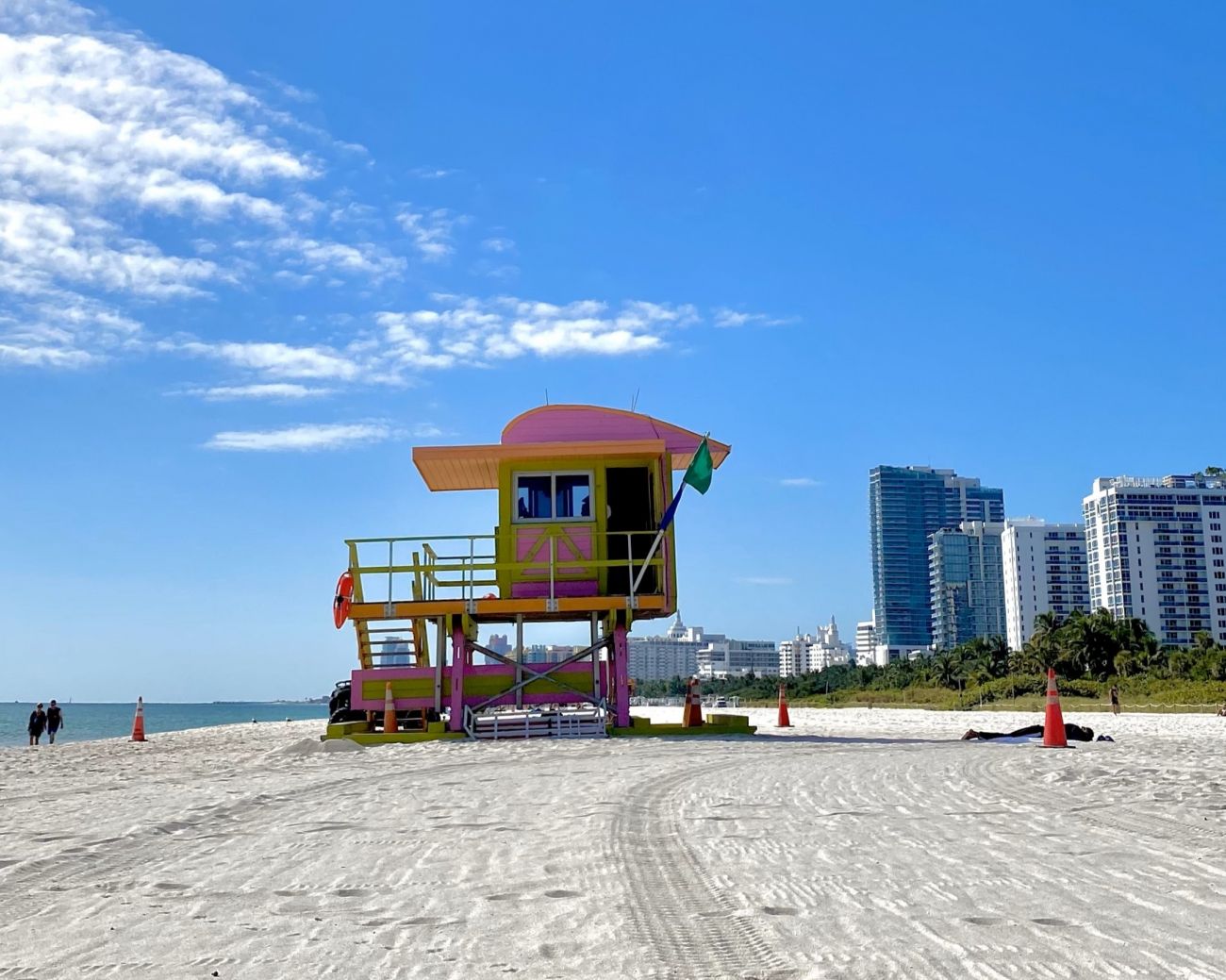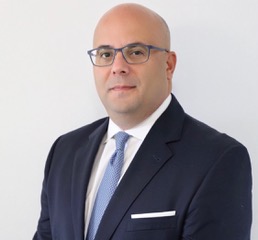
CAREER - MIAMI: AN AMERICAN DREAM FOR FRENCH TALENT (États-Unis)
Miami is a temple of opportunity for French people looking to move abroad. But before you take off, you need to be aware of the many formalities involved, as well as the benefits and constraints of such a move. |
 |
CAREER - MIAMI: AN AMERICAN DREAM FOR FRENCH TALENT (États-Unis)
Miami is a temple of opportunity for French people looking to move abroad. But before you take off, you need to be aware of the many formalities involved, as well as the benefits and constraints of such a move. |
Catégorie : Amérique du Nord et Antilles - États-Unis - Carrières
- Carrière
Article rédigé par Vanessa Guerrier-Buisine le 20-06-2024
 One of Miami Beach's iconic lifeguard cabins
Crédit photo © Camille Andrieu Getting the right visa to work in FloridaBefore you can fly to Florida to work in the hotel and restaurant industry, you need to complete a number of administrative formalities. Several types of visa allow French nationals to work in Florida: the H-1B visa, reserved for specialized temporary workers; the H-2B visa, limited to seasonal employment; the L-1 visa, for intra-company transfers; and the E-2 visa for investors.
To obtain an H-1B visa, you must demonstrate specialized skills, backed up by a diploma or equivalent in the industry concerned. This visa is valid for up to three years, renewable for up to six years.
To qualify for the H-2B visa, you must hold a temporary or seasonal non-agricultural job lasting less than a year, and your employer must prove that no American worker is eligible for the job in question. This programme is currently capped at 66,000 visas per year.
The L-1 visa requires you to be an employee of an international company with a subsidiary in the United States, and to have worked for the company for more than one year in the last three years. This visa is valid for up to three years, and can be extended to seven years for senior executives.
Finally, you can apply for an E-2 visa, which Riviera Dining Group favours. Stefania Messina, the group's immigration specialist, explains: “To start the process, candidates can express their interest through our various recruitment channels. Once the candidate has successfully completed the selection process, we proceed with the visa application if the candidate satisfies the requirements.” A job offer from an American employer is essential, and the employer often has to prove that there are no American workers available for the position". To meet immigration requirements, “applicants must be French nationals with specialized skills in their field evidenced gradually, letters of employment or certificates," adds Stefania.
A lawyer from the company is involved in assessing eligibility for the visa. "We collect all the necessary documentation and submit it to the embassy in Paris. Afterwards, applicants must attend the interview at the embassy to obtain an E2 visa stamp in their passport. This type of visa can be granted for up to five years, with the possibility of renewal near expiration. In addition, the visa allows the holder to bring a spouse and children with him/her to the United States," she explains.Organizing your arrivalObtaining a visa is only the first step in your life as a worker in Florida. Upon arrival, a series of formalities still need to be completed, and many questions need to be answered quickly to facilitate integration.
To comply with tax and administrative rules, the first step is to apply for an American Social Security number. Then come the questions of transport and accommodation, and health insurance, given the high cost of living in the country and the exorbitant health costs.
To ensure a smooth landing for its new talent, Riviera Dining Group has created a genuine integration handbook, in which new employees will find practical information to help them deal with basic problems: " How to get here from the airport? How do I get my Social Security card? How do I get a bank account? How do I open a bank account? What essentials do I need besides my uniform? Where can I go shopping? How will I get to work? What are American holidays? What are American cultures? How is the dollar used? We tell them everything", explains Robert Blasi, Partner and Chief People Officer within the Group.Career opportunitiesWhile many hotel industry companies recruit and appreciate French candidates, the Riviera Dining Group, which is expanding rapidly, offers numerous career opportunities. "Right now, we're 700 people, and we're going to add another 500 with the opening of Casa Neos in June, and another 350 with the opening of the French restaurant Claudie in September, then another 350 with the opening of our Greek restaurant Ava in December or January," explains Robert Blasi. Open positions range from barmen, waiters, hosts/hostesses, cooks, pastry chefs... to operations directors, managers and head office positions.
There are plenty of positions, but companies are looking for people with proven interpersonal skills and high added value. The aim is to make the difference with American candidates. RDG is therefore looking for professionals with experience in luxury service, who both understand and embody luxury standards. "We have a very strong recruitment philosophy and use behaviour-based interview questions", explains Robert Blasi.
It is in the catering sector that the French enjoy the most opportunities. French professionals bring added value in terms of culture and culinary knowledge, which is particularly appreciated in places like Mila. “We're really looking for individuals that can speak the language, that can transport you, that you feel like you're in the Mediterranean," explains Robert Blasi.Training in local codesOnce recruited, a training plan and integration phase to absorb all the company's codes are the order of the day. At RDG, the training and onboarding plan is divided into two phases. The first part is devoted to the company's culture, the vision of its founders, Marine Giron-Galy and Grégory Galy, the company's French roots, the chef's Greek and Asian influences, etc. The second phase is devoted to HR issues. The compensation system, American laws, performance assessment, existing rewards and sanctions, protocols around uniforms and grooming...
Issues relating to harassment and sexual harassment are also dealt with very seriously and regularly. “Everybody has to go through sexual harassment training on an annual basis, which is required under the law. And for managers, they go through twice a year, so, they know how to look for any issues that might arise on a daily basis,” explains Robert Blasi.Well-being and benefits for employeesIn the United States, each company has its own policy on employee well-being. At RDG, employees enjoy a wide range of benefits, particularly when it comes to health. "We offer very strong health benefits, including health, dental and vision insurance, as well as ancillary benefits such as pet insurance, intensive care insurance, short and long-term disability, and fertility programmes," explains Robert Blasi. The group also offers a mental health programme with a 24/7 helpline.
It is in this context that Riviera Dining Group has been certified by Great Place To Work for 2024-2025, a recognition based on employee feedback. Stefania Messina shares, “An overwhelming 77 percent of employees said it was a great place to work, 20 points higher than the average U.S. company.” This certification attests to the Group's commitment to offering an exceptional working environment.
Like other American companies, the Group is also committed to the issue of diversity, hosting regular themed seminars to bring employees together around themes that unite them.Pay and working hoursIn practice, American legislation does not provide for a legal working week, such as the 35 or 39 hours applicable in France. While Americans work an average of 40 hours a week, many work longer hours and hold down several jobs. At Riviera Dining Group, “Those on visas are guaranteed hours. For example, our J1 candidates work 32 hours in the week.Each visa has different parameters,” completes Robert Blasi.
Beyond 40 hours a week, overtime is paid at 1.5 times the hourly wage. Many jobs in the restaurant industry are part-time, which is not the case at Riviera Dining Group, which favours full-time employment.
Breaks, particularly the lunch break, are at the discretion of the employer, as they have no legal requirements. While most employers allow a 30-minute lunch break, shift patterns often persist in the catering industry.
As for wages, the minimum in the hospitality and restaurant industry is set at $12 an hour. However, it varies for employees who receive tips, dropping to $8.98. If your tips don't allow you to reach this minimum amount, the employer is obliged to pay you.
That said, the culture of tipping is very strong in the United States, and greatly increases the income of restaurant workers. Etiquette dictates that 15 to 25% of the bill should be left as a tip, which offers great opportunities for motivated employees.
In hotels, too, there is a culture of tipping, which boosts the salaries of floor staff and valets in particular.Living in MiamiMiami is an attractive place to live for many French people. More than 10,000 French people live in Miami, compared with around 30,000 in the whole of Florida. According to Robert Blasi, Miami is a dynamic place, with a lively nightlife, magnificent beaches, and a wellness culture where people jog, cycle and enjoy many other outdoor activities.
“It's the gateway to the Caribbean, the gateway to South America, Central America, with incredible travel opportunities," he adds. According to chef Michael Michaelidis, culinary director of the RDG Group, "Miami steals the show from New York", and he adds, "we have a superb climate".
Given these assets and this success, finding accommodation is a challenge for workers in Miami, as rents soar from one district to another. Employers often assist expatriates in their search for accommodation. This is the case with the Riviera Dining Group, which puts new employees in touch with local estate agents.
Aside from the administrative challenges involved in coming to work in Miami, the destination offers a host of job opportunities and a quality of life that encourages young people to want to extend their stay. This experience is facilitated by the many French hotel and restaurant managers who are based here, as well as by other entrepreneurs who are keen to learn more about the French way of doing business.
 Stefania Messina, immigration specialist with the Riviera Dining Group
Crédit photo © Riviera Dining Group
 Robert Blasi is the Chief People Officer of Riviera Dining Group in Miami
Crédit photo © Riviera Dining Group
|
|





